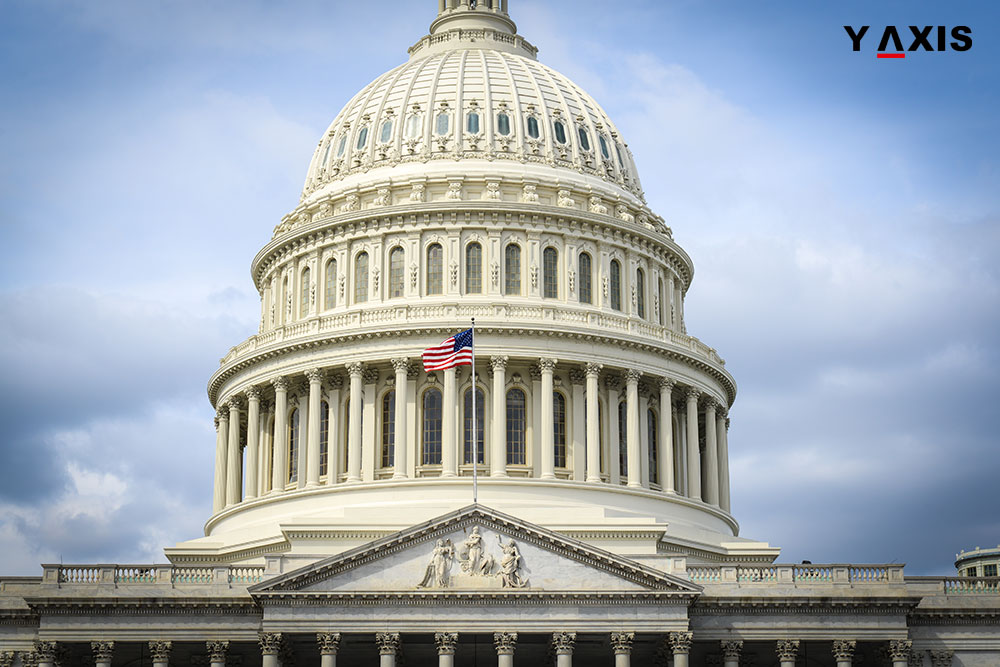Posted on July 12 2016
New Bill mooted by US lawmakers not to affect Indian IT companies
By , Editor
Updated May 10 2023
 The H-1B and L-1 Visa Reform Act of 2016, which was introduced by Rep. Bill Pascrell (D-N.J.) from New Jersey and Dana Rohrabacher (R-Calif.), would bar companies from recruiting H-1B workers if they hire more than 50 people and if more than 50 percent of their employees are holders of H-1B and L-1 visa. But this $100 billion bill is not expected to adversely affect Indian IT services exports because it is unlikely to be passed in the form it is now and also since India-based IT firms have been hiring more native Americans of late.
Indian technology companies depend greatly on the H-1B and L-1 visas for their transactions in the US to be undertaken as North America’s contribution to this sector’s earnings is about 60 percent.
Nasscom vice president & head, global trade development, Shivendra Singh, was quoted by the Financial Express as saying that these days cost is not a major priority, but it is the availability of candidates with appropriate skills. Till such time that skilled professionals are not available, the approach has to be measured, said Singh.
Singh cites the US Labour department’s estimates which show that 2.4 million jobs would remain vacant in the STEM (science, technology, engineering and mathematics) sector by 2018 and half of them would be for the IT and its related segments.
Echoing the same sentiment is India Information Services Group head, Dinesh Goel, who says that the proposal should not cause anxiety to Indians as many such Bills in the past, which have been mooted, have never been passed. According to Goel, as long as there is a paucity of talented workers in the US, immigration would continue to rule the roost.
If you are also a skilled STEM worker and are looking to migrate to the US, come over to Y-Axis and avail the assistance and guidance of its professional staff for filling for an appropriate visa at its 19 offices which are located across India.
The H-1B and L-1 Visa Reform Act of 2016, which was introduced by Rep. Bill Pascrell (D-N.J.) from New Jersey and Dana Rohrabacher (R-Calif.), would bar companies from recruiting H-1B workers if they hire more than 50 people and if more than 50 percent of their employees are holders of H-1B and L-1 visa. But this $100 billion bill is not expected to adversely affect Indian IT services exports because it is unlikely to be passed in the form it is now and also since India-based IT firms have been hiring more native Americans of late.
Indian technology companies depend greatly on the H-1B and L-1 visas for their transactions in the US to be undertaken as North America’s contribution to this sector’s earnings is about 60 percent.
Nasscom vice president & head, global trade development, Shivendra Singh, was quoted by the Financial Express as saying that these days cost is not a major priority, but it is the availability of candidates with appropriate skills. Till such time that skilled professionals are not available, the approach has to be measured, said Singh.
Singh cites the US Labour department’s estimates which show that 2.4 million jobs would remain vacant in the STEM (science, technology, engineering and mathematics) sector by 2018 and half of them would be for the IT and its related segments.
Echoing the same sentiment is India Information Services Group head, Dinesh Goel, who says that the proposal should not cause anxiety to Indians as many such Bills in the past, which have been mooted, have never been passed. According to Goel, as long as there is a paucity of talented workers in the US, immigration would continue to rule the roost.
If you are also a skilled STEM worker and are looking to migrate to the US, come over to Y-Axis and avail the assistance and guidance of its professional staff for filling for an appropriate visa at its 19 offices which are located across India.Tags:
US lawmakers
Share
Options for you by Y-Axis
Get it on your mobile
Get News alerts
Contact Y-Axis

